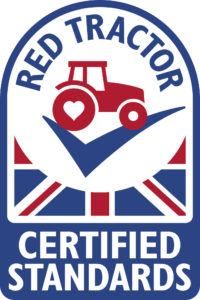Forewords
Darren Yaxley,
Head of Reputation & Business Research, YouGov
![]()
The 2022 results once again show an encouragingly high level of trust in UK food quality and standards. However, there are some potentially worrying signs in the data. A quarter of respondents think that food standards in the UK has declined over the past two years, and two in five are concerned that new trade deals will affect food standards. Red Tractor has a role to play here in ensuring that consumers can continue to trust in the standards of food produced in the UK.
The research was carried out against the backdrop of the cost-of-living crisis. We know from YouGov’s Issues Tracker that the economy is the most important issue facing the country and the results show that these concerns are having an impact upon some consumer behaviour in relation to food. Around half say they have made some changes to their purchasing decisions, with three in ten buying less meat (YouGov Profiles shows that Sainsbury’s and Waitrose shoppers are most likely to do this), a quarter buying what they perceive to products produced to a lower standard, and just over one in ten buying less fruit and veg. Only a handful of consumers say they are now buying less British food though – testament to the high levels of trust they have in food which is produced in this country.
Christine Tacon,
Chair, Red Tractor

Founded in 2000, Red Tractor was created to help ensure British food is responsibly sourced, safely produced, and comes from crops and animals that have been well-cared for. Most crucially, we work to reassure consumers that safety and high standards are not sacrificed to make food affordable. We believe that everyone should have access to food that is safe, traceable, and farmed with care, regardless of their budget.
The inaugural Trust in Food Index in 2021 made it clear that food from the UK was incredibly well-trusted, more so than anywhere else in the world. That holds true again with this year’s research.
The study has also revealed some significant shifts in consumer sentiment, as the effects of the pandemic, the war in Ukraine and the cost-of-living crisis take hold. Levels of trust have fallen in almost all UK institutions, with food experiencing the second biggest drop overall after utilities.
We wanted to understand how rising food prices are impacting buying behaviour. Five out ten (46 per cent) people told us they are changing what they buy, with 30 per cent of shoppers buying less meat, and worryingly 13 per cent buying less fruit and vegetables. Almost a quarter (24 per cent) of consumers are buying what they perceive to be food produced to lower food safety and animal welfare standards. The most troubling aspect of these findings is that the people who are feeling the greatest financial pressure are forced to make the largest dietary concessions.
Whilst overall trust in food bought in supermarkets remains high, the research found that only four in ten shoppers trust supermarkets, as people perceive that the food they are buying is produced to lower food safety and animal welfare standards.
There is a perception among consumers that by trading down, buying cheaper products, or switching to supermarket value ranges, they are eating food which is not sourced and assured to the same level as premium brands and ranges. This is clearly impacting trust and is bad news for the food industry.
However, when it comes to food and farming, the UK is one of the most regulated countries in the world. The strict regulations on food safety, animal welfare, and other aspects of food production, apply equally to value ranges as they do to premium products.
So, reinforcing ‘British’ is vital to retaining consumer trust. Going further, by identifying products as assured through schemes like Red Tractor or British Lion can address people’s perception that ‘cheaper means lower standards.
